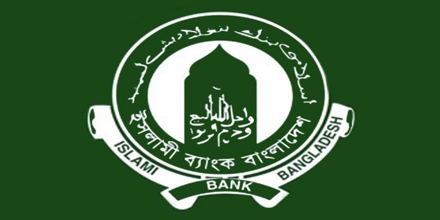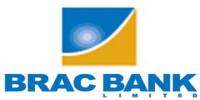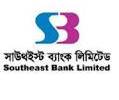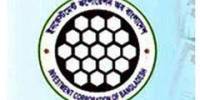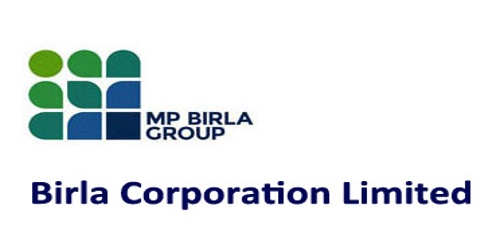Investment Modes of Islami Bank Bangladesh Limited
Banking plays an important role in the economy of any country. In Bangladesh Muslim holds the majority of the population. Though, no Islamic banking but only traditional banking system was developed here till 1983. However, interest is absolutely prohibited in Islam. The main aim of traditional banking is to earn profit by borrowing and lending money in exchange of interest.
As a result there is an unfair competition among the bankers and among the customers. The people of this country are profoundly committed to Islamic way of life as enshrined in the holy Qur‟an and the Sunnah. Naturally, it remains deep in their hearts to fashion and design their economic lives in accordance with the precepts of Islam.
The establishment of Islami Bank Bangladesh Limited on March 13, 1983, is the true reflection of this inner urge of its people, which started functioning with erect from March 30, 1983. Now, a question may arise- „what is Islami Banking?‟ According to OIC- “Islamic bank is a financial institution whose status, rules and procedures expressly state its commitment to the principle of Islamic Shariah and to the banning of the receipt and payment of interest on any of its operations.”
This bank is the first of its kind in South-East Asia. It is committed to conduct all banking and investment activities on the basis of interest fee profit-loss sharing system. In doing so, it has unveiled a new horizon and ushered in a new silver lining of hope towards materializing a long cherished dream of the people of Bangladesh for doing their banking transactions in line with what is prescribed by Islam. With the active co-operation and participation of Islamic development bank (IDB) and some other Islamic banks, financial institutions, government bodies and eminent personalities of the Middle East and the gulf countries, Islami Bank Bangladesh Limited has by now earned the unique position of a leading private commercial bank in Bangladesh.
History of Islami Bank in Bangladesh
In the late seventies and early eighties, Muslim countries were awoken by the emergence of Islami Bank which provided interest free banking facilities. There are currently more than 614 interest free institutions all over the world. Today Islami Bank not only operates in almost all Muslim countries, but have extended their wings to the western world to serve both Muslim and non Muslim customers. In case of Islami Banking, the establishment of Mitghamar Local Savings Bank in 1963 is said to be a milestone for modern Islami Banking.
In 1974, Bangladesh signed the Charter of Islamic Development Bank and committed itself to reorganise its economic and financial system as per Islamic Shariah. In 1978, Bangladesh recommended in Islamic Foreign Minister Conference in Senegal towards systematic efforts to Islamic Banking. In 1980, Foreign Minister Conference in Pakistan where Bangladesh Foreign Minister Prof. Shamsul Hoq, proposed for taking steps for Islamic Banking. Further, Bangladesh Bank sent representation abroad to study Islamic Banking System.
In 1981, President of the Peoples Republic of Bangladesh addressed the 3rd Islamic Summit Conference held at Makkah and Taif suggested, ”The Islamic countries should develop a separate banking system of their own in order to facilitate their trade and commerce. ”In 1982, IDB visited Bangladesh for study. They found contributions done by Islamic Economics Research Bureau (IERB) and Bangladesh Islamic Bankers Association (BIBA); they mobilized the seminars, public opinion through symposia & workshop. Professional activities reinforced by Muslim Businessman Society (now reorganized as Industrialists and Businessman Association).
The body mobilized mainly equity capital for emerging Islamic Bank. Finally, in 1983 Islami Bank Bangladesh Limited (IBBL) came out to take the challenge of doing banking business. Islami Bank Bangladesh Limited (IBBL) is considered to be the first interest free bank in Southeast Asia. It was incorporated on 13-03-1983 as a Public Company with limited liability under the companies Act 1913. The bank began operations on March 30th, 1983, with major share by the foreign entrepreneurs. IBBL is a joint venture multinational Bank with 63.92% of equity being contributed by the Islamic Development Bank and financial institutions. The total number of branches in 2012 stood at 276. Now the authorized capital of the bank is Tk. 20,000 million and Paid op capital is Tk. 10007.71 million.
Objectives of Islamic Bank
The primary objective of establishing Islamic Bank all over the world is to promote, foster and develop the application of Islamic principles in the business sector. More specifically, the objectives of Islamic bank when viewed in the context of its role in the economy are listed as following:
- To offer contemporary financial services in conformity with Islamic Shariah;
- To contribute towards economic development and prosperity within the principles of Islamic justice
- Optimum allocation of scarce financial resources; and
- To help ensure equitable distribution of income.
Products and Services:
Under products and services Islami Bank Bangladesh Ltd. has below categories:
- DEPOSIT SCHEMES:
- Al-Wadiah Current Account (AWCA)
- Mudaraba Savings Account (MSA)
- Mudaraba Term Deposit Account (MTDR)
- Mudaraba Special Notice Account (MSNA)
- Mudaraba Hajj Savings Account (MHSA)
- Mudaraba Special Savings (Pension) Account (MSSA)
- Mudaraba Savings Bond (MSB)
- Mudaraba Monthly Profit Deposit Account (MMPDA)
- Mudaraba Mahr Savings Account (MMSA)
- Mudaraba Waqf Cash Deposit Account (MWCDA)
- Mudaraba NRB Savings Bond (MNSB) Account
- Mudaraba Foreign Currency Deposit Account (MFCD)
- Students Mudaraba Savings Account (SMSA)
- Mudaraba Farmers Savings Account (MFSA)
- Investment Modes:
BAI- Modes
- Bai-Murabaha
- Bai-Istijrar
- Bai-Muajjal
- Bai Salam
- Istishna
- Bai-Asharf
SHARE- Modes
- Mudaraba
- Musharakah
IJARA-Modes
- Hire Purchase under Shirkatul Meelk (HPSM)
Under this mode Bank may supply implements/ equipment/goods on rental basis. The ownership of the implements/equipment/goods will be with the Bank and the client jointly and the portion of the client will remain to the Bank as mortgage until the closure of the investment account, but the client will be authorized to possess the equipment for certain period. The client, after completion of the installments, will be the owner of the implements/ equipment/goods.
- INVESTMNET SCHEME
- Household Durables Scheme (HDS)
- Investment Scheme for Doctors (ISD)
- Transport Investment Scheme (TIS)
- Car Investment Scheme (CIS)
- Small Business Investment Scheme (SBIS)
- Micro Industries Investment Scheme (MIIS)
- Agricultural Implement Investment Scheme (AIIS)
- Real Estate Investment Program (REIP)
- Real Estate Investment (Commercial & Working Capital)
- Agricultural Investment of IBBL
- NRB (Non Resident Bangladeshi) Entrepreneurs Investment Scheme (NEIS)
- Women Entrepreneurs Investment Scheme (WEIS)
- RURAL DEVELPOMENT SCHEME
- FOREIGN EXCHANGE BUSINESS SERVICES
Special Services:
- Locker Services
- ATM Services
Project Summary
As my report is based on Investment of IBBL so here I tried to show investment analysis on that particular investment practice of IBBL through my findings. I tried to find out the reasons of preferring this bank by customers, how it is helpful to our economy and our country. Here, I also tried to find out the current situation through trend analysis of last 5 years of this bank and the future prospected area under consumer investment. For collecting this information, I took interview of a few officers of the bank and also took the help of different documents related to bank. This report shows the financial performance of Islami bank and conventional bank, the picture of current situation in consumer investment of IBBL, and the future prospect in this area.
OBJECTIVE OF THE PROJECT
- To know the consumer investment process of IBBL.
- To know the comparison of Islami bank and conventional bank
- To know the current situation of IBBL through trend analysis
- To identify the position of consumer investment among other investments in IBBL.
- To identify the future prospect of IBBL in consumer investment.
METHODOLOGY
Data collection:
Different data and information are collected from various sources, such as primary and secondary which is given below
Primary sources of data:
- Personal inspection
- Questionnaire/interview to Officers and clients
- Work experience at different desk of the Bank
Secondary Sources of Data
- Financial report of IBBL
- Internet
- Brochure/ Books
- Bank Documents
Investment
Various Islamic financial institutions, especially in Islamic countries offer various types of investment products that are free of Riba or interest. An Islamic investment fund is usually one in which a number of people pool their money and the money is in turn invested in an Islamic legal manner. Definition of investment funds by the Accounting and Auditing Organization of Islamic Financial Institutions (AAOIFI) is- “Funds are investment vehicles, which are financially independent of the institutions that establish them. Funds take the form of equal participating shares/units, which represent the shareholders‟/unit holders‟ share of the assets, and entitlement to profits or losses. The funds are managed on the basis of either Mudaraba or agency contract.”
Investment is the action of deploying funds with the intention and expectation that they will earn a positive return for the owner (Brokington 1986, p.68). When resources are used for purchasing fixed and current assets in a production process or for a trading purpose, then it can be termed as real investment. On the other hand, the purchase of a legal right to receive income in the form of capital gains or dividends would be indicative of financial investments.
Objectives and Principles of Investment
The objectives and principles of investment operations of the Bank are:
- To invest fund strictly in accordance with the principles of Islamic Shariah.
- To diversify its investment portfolio by the size of investment, by sectors (public & private), by economic purpose, by securities and by geographical area including industrial, commercial, and agriculture.
- To ensure mutual benefit both for the bank and the investment-client by professional appraisal of investment proposals, judicious sanction of investment, close and constant supervision and monitoring thereof.
- To make investment keeping the socio-economic requirement of the country in view.
- To increase the number of potential investors by making participatory and productive investment.
- To finance various development schemes for poverty alleviation, income and employment generation with a view to accelerating sustainable socio-economic growth and uplift of the society.
- To invest in the form of goods and commodities rather than give out cash money to the investment clients.
Bai- Mechanism
Bai-Murabaha
Meaning & Definition:
The terms „Bai-Murabaha‟ have deprived from Arabic words Bai and Ribhun. The word Bai means purchase and sale and the words „Ribhun‟ means an agreed upon profit. Bai Murabaha means sale on agreed upon profit.
Bai-Murabaha may be defined as a contract between a buyer and a seller under which the seller sells certain specific goods permissible under Islamic Shariah and the Law of the land to the buyer at a cost plus an agreed upon profit payable today or on some date in the future in lumpsum or by installments. The profit may be either a fixed sum or based on a percentage of the price of the goods. There are different types of Murabaha as given below:
Types of Murabaha
In respect of dealing parties Bai-Murabaha may be of two types-
Ordinary Bai-Murabaha:
Only two parties participate in this contract.
Bai –Murabaha on order and promise:
There are three parties in Bai-Murabaha on order and promise. Mostly it is for commercial use.
Important features:
- It is permissible to take cash/collateral security to guarantee the implementation of the promise or to indemnify any losses that may result.
- The bank sells the goods at a price above the cost to obtain a profit. The sale price that is charged by the bank is agreed upon in the Bai-Murabaha. The profit can be stated in terms of a flat dollar amount or on a percentage of the purchase price. If a percentage is used, the percentage shall never be expressed in terms of time, in order to avoid confusion that the price is a form of interest (Riba), which is not allowed.
- The price agreed to in the agreement is binding on both parties.
- It is permissible for the bank to contract with a third party to buy and receive the goods on its behalf. This agreement must be a separate contract.
Steps of Bai-Murabaha Practiced by Islami Bank:
- Submission of proposal from the client
- Signing a promise by the client to purchase
- The first sale contract
- Singing of Murabaha Sale Contract
- Delivery and receipt the commodity
Bai-Muajjal (Deferred Sale)
Meaning & Definition:
The terms “Bai” and “Muajjal” have been derived from Arabic words „Bai‟ and „Ajjal‟. The word Bai means purchase and sale and the word „Ajjal‟ means a fixed time or a fixed period. “Bai-Muajjal” means sale for which payment is made at a future fixed date or within a fixed period. In short, it is a sale on Credit.
The Bai-Muajjal may be defined as a contract between a Buyer and a seller under which the seller sells certain specific goods (permissible under Shariah and law of the country), to the Buyer at an agreed fixed price payable at a certain fixed future date in lump sum amount or within a fixed period by fixed installments. The seller may also sell the goods purchased by him as per order and specification of the buyer.
Bai –Muajjal is treated as a contract between the bank and the client under which the bank sells to the client certain specific goods, purchased as per order and specification of the client at an agreed price payable with in a fixed future date in lump sum or by fixed installments.
Thus it is a credit sale of goods by which ownership of the goods is transferred by the bank to the client but the payment of sale price by the client is deferred for fixed period.
Important features:
- It is permissible and in most cases, the client will approach the bank with an offer to purchase a specific good through a Bai-Muajjal agreement.
- It is permissible to make the promise binding upon the client to purchase the goods from the bank.
- It is also permissible to document the debt resulting from Bai-Muajjal by a Guarantor, or a mortgage or both, like any other debt.
- Mortgage/Guarantee/Cash security may be obtained prior to the signing of the Agreement or at the time of signing the Agreement.
- All goods purchased on behalf of a Bai-Muajjal agreement are the responsibility of the bank until they are delivered to the client.
- The bank must deliver the goods to the client at the time and place specified in the contract.
- The bank may sell the goods at a higher price than the purchase price to earn profit.
- The price is fixed at the time of the agreement and cannot be altered.
- The bank is not required to disclose the profit made on the transaction.
Bai- Salam
Meaning & Definition:
The terms “Bai” and “Salam” have been derived from Arabic words. The words “Bai” means “sale and purchase” and the word “Salam” means “Advance‟‟. “Bai-Salam” means advance sale and purchase.
It is a sale in which an advance payment is made by the buyer, but the delivery is delayed to an agreed date. In the Bai-Salam, a financial transaction happens in advance in cash as a price of commodity whose delivery will be in a future date. It means deferred is the commodity sold (debt in kind) and price of the commodity described is to be Bai-Salam, a financial transaction happens in advance in cash as a price of commodity described is to be aid immediately in advance.
Important features:
- Generally, industrial and agricultural products are purchased\ sold in advance under BaiSalam mode of investment to infuse finance so that product is not hankered due to shortage fund/cash.
- It is permissible to obtain collateral security from the seller client to secure the investment from any hazards via non-supply/ partial supply of commodity/product(s), supply of low quality commodity /product(s).
- It is also permissible to obtain Mortgage and/or Personal Guarantee from a third party as security before the signing of the Agreement or at the time to signing the Agreement.
- The seller client may be made agent of the Bank to sell the goods delivered to the Bank by her provided a separate agency agreement is executed between the bank and the client.
Rules of Bai-Salam:
- It is a condition that the commodity known by both parties to the agreement.
- The quality of the commodity is monitored closely, as very little variation from specifications in the contract is allowable. The commodity is deliverable on the due date. If there is uncertainty about the ability to deliver the commodity at the due date, a Salam transaction is impermissible.
- It is permissible to draw a Salam sale contract for a total to be delivered increments on different specified future dates.
- It is a condition that the commodity is a liability debt. The seller is obliged to deliver the commodity when it is due, according to the specifications stipulated in the contract, whether or not his firm produces the commodity or obtained from other firms.
- Salam sales are impermissible on existing commodities because damage and deterioration cannot be assured before delivery on the due date.
Bai- Istishna
Definition:
Istishna is a contract between a manufacturer/seller and a buyer under which the manufacturer/seller sells specific product(s) after having manufactured, permissible under Islamic Shariah and Law of the Country after haying manufactured at an agreed price payable in advance or by go downs within a fixed period or on/within a fixed future date on the basis of the order placed by the buyer.
Features of Istishna:
Istishna is an exceptional mode of investment allowed by Islamic Shariah in which product(s) can be sold without having the same in existence. In the product(s) are ready for sale. Istishna is not allowed is Shariah. Then the sale may be done either in Bai-Murabaha or Bai-Muajjal mode of investment. In this mode, deliveries of goods are deferred and payment of price may also be deferred.
- It facilitates the manufacturer sometimes to get the price of the goods in advance, which he may use as capital for producing the goods.
- It gives the buyer opportunity to pay the price in some future dales or by go downs.
- Istishna is specially practiced in manufacturing and industrial sectors; however, it can be practiced in agricultural and constructions sectors also.
Ownership Mechanism
Hire purchase (Ijarah)
The term Ijarah has been derived from the Arabic words „Air‟ and „Uirat‟ which means consideration, return, wages or rent. This is really the exchange value or consideration, return, wages, rent of service of an asset. Ijarah has been defined as a contract between two parties, the Hiree and Hirer where the Hirer enjoys or reaps a specific service or benefit against a specified consideration or rent from the asset owned by the Hiree.
Element of Ijarah:
The Hire: the individual or organization hires/rents out the property of service is called the Hiree.
The Hirer: the individual of organization hires / takes the hire of the property or service against the consideration.
The Rent: the consideration either in monetary terms or in kinds fixing quantity of goods/money to be paid against the benefit of the asset or service of the asset is called the rent
Hire Purchase under Shirkatul Meelk (HPSM)
Shirkatul means partnership Shirkatul Meelk means share in ownership. When two or more persons supply equity, purchase an asset, own the same jointly, and share the benefit as per agreement and bear the loss in proportion to their respective equity, the contract is called Shirkatul Meelk contract.
Hire Purchase under Shirkatul Meelk made both the bank and the client supply equity in equal or unequal proportion for purchase of an asset like land, building, machinery, transport etc.
Purchase the asset with that equity money, own the same jointly; share the benefit as per agreement and bear the loss in proportion to their respective equity. The share part or portion of the asset owned by the bank is hired out to the client partner for a fixed rent per unit of time for a fixed period. Lastly the bank sells and transfers the ownership of its share/ part/ portion to the client against payment of price fixed for that part either gradually part by part or in lump sum within the hire period or after the expiring of the hire agreement.
Stages of Hire Purchase under Shirkatul Meelk
Hire Purchase under Shirkatul Meelk agreement has got three stages:
- Purchase under joint ownership
- Hire and
- Sale and transfer of ownership to the other partner Hirer.
Rules of HPSM:
It is a condition that the asset to be hired must not be a fungible one which cannot be used more than once or in other words the asset must be a non-fungible one which can be utilized more than once or the service of which can be separated from the asset itself.
- It is a condition that the subject of the contract must actually and legally be attainable. The Hirer shall ensure that he will make use of the asset as per provisions of the Agreement.
- The hire contract is permissible only when the asset and the benefit derived from it is with in the category as per Islamic Shariah.
- It is permissible to advance, defer or install the rental in accordance with the agreement as well as to make the Hirer to bear the cost of ordinary routine maintenance, because this cost is normally known and can be considered as part of the rental.
- If the hired asset is damaged or destructed by the act of Allah and if the Hiree offers a substitute with the same specifications agreed upon in the hire contract the contract does not terminate.
- Under HPSM agreement, both the Hire and the Hirer must pay their respective equity as agreed upon to purchase the demised asset under joint ownership.
Share Mechanism Mudaraba
Definition:
It refers to a contact between two parties in which one party supplies capital to the other party for the carrying on of some trade on the condition that the resulting profits are distributed in a mutually agreed proportion while all loss is borne by the provider of the capital. Mudaraba is also known as Qurad and Muqaradah.
Mudaraba is a contract of those who have capital with those who have expertise where the first party provides capital and other party provides the expertise with the purpose of earring “halal” (Lawful) profit which will be devised between them in ration agreed upon. This mode serves the business interest of the capital owner and the Mudarib (agent).
Steps of Mudaraba:
- The Results of Mudaraba
- Payment of Mudaraba Capital
- Distribution of wealth resulting from Mudaraba
Rules of Mudaraba:
It is a condition in Mudaraba that the capital be specific in nature. In other words, the amount of capital must be known at the inception of the contract. The purpose of this rule is to ensure that there is no uncertainty about the amount of capital and thus, no uncertainty about the division of profits.
It is also included in the condition that, capital must be in the form of currency in circulation. However, merchandise can be contributed, so long as both parties to the business arrangement agree upon its value. The capital of the Mudaraba must be delivered to the Mudarib. It is permissible for the Mudarib to hire an assistant to perform difficult work that he is unable to perform on his own.
Musharakah (Partnership)
Meaning and definition:
The word Musharakah is derived from the Arabic word Sharikh meaning partnership. Islamic jurists point out that the legality and legality and permissibility of Musharakah is based on the injunctions of the Holy Quran‟s, Sunnah, and Ijma (consensus) of the scholars. It may be noted that Islamic Banks are inclined to use various forms of Shariakt-al-Inan because of its built on flexibility. At an Islamic bank, a typical Musharakah transaction may be conducted on the following manner.
One two or more entrepreneurs approach an Islamic Bank for the finance required for a project. The bank along with other partners provides complete finance. All partners, including the bank have the right to participate in the project. They can also waive this right. The profits are to be distributed according to an agreed ratio, which need not be the same as the different partners have provided the finance for the project Musharakah may be of two types:
- Permanent and
- Diminishing Musharakah
- Permanent Musharakah:
The contributions of the partners under this mode may be equal or unequal ratios of capital to establish a new income-generating project or to participate in an established one, whereby each participant owns a share in the capital structure permanently and deserves his share of the profit income. In this case the bank participates in the equity of a company and receives an annual share of the profits on a pre-rate basis. The period of termination of the contract is not specified.
This financing technique is also referred to as continued Musharakah.
Diminishing partnership:
Diminishing Musharakah is an intention from the very beginning not to stay in and continue the partnership up to the liquidation of the company. The Islamic bank can give the other partner the right to purchase portion of the bank on the ownership [the form for full payment at a time or by installment basis as per agreement with the partners (the client).
The bank participates as a financial partner, in full or in part, in a project with a given income forecast. An agreement is signed by the partner and the bank through which the bank receives a share of the profit as a partner. However, the agreement also provides payment of a portion of the net income of the net income of the project as repayment of the principal financed by the bank. The partner is entitled to keep the rest.
The bank gradually can relinquish share to the partner, in exchange the partner pays the price to the bank periodically during a reasonable period to be agreed upon. After the discharge, the bank withdraws it claims from the firm and it becomes the property of the partner. Decreasing partnership is a mode innovated by the Islamic banks. It differs from the partnership. Those are mentioned below.
Investment Process of IBBL:
Generally a bank takes certain steps to deliver its proposed investment to the client. But the process takes deep analysis. Because banks invest depositors fund, not banks‟ own fund. If the bank fails to meet depositors demand, then it must collapse. So, each bank should take strong concentration on investment proposal. However, Islami Bank Bangladesh Limited (IBBL) makes its investment decision through successfully passing the following crucial steps:
- Selection of the client:
First of all, client approaches to any of the branches of Islami Bank Bangladesh Limited (IBBL). Then, he talks with the manager or respective officer (Investment).
Secondly, bank considers five C‟s of the client. After successful completion of the discussion between the client and the bank, bank selects the client for its proposed investment. It is to be noted that the client/customer must agree with the bank‟s rules & regulations before availing investment. Generally, bank analyses the following five C’s of the client:
- Character
- Capacity
- Capital
- Collateral
- Condition
- Application stage
At this stage, the bank will collect necessary information about the prospective client. For this reason, bank informs the prospective client to provide and/or fill duly respective information which is crucial for the initiation of investment proposal. Generally, here, all the required documents for taking investment have to prepare by the client himself. Documents that are necessary for getting investment of IBBL are prescribed here:
- Trade License photocopy (for proprietorship);
- Abridged pro forma income statement;
- Attested copy of partnership deed (for partnership business);
- Prior three (03) years‟ audited balance sheet (for joint stock company);
- Attested copy of the Memorandum of Association (MOA) & Articles of Association (AOA) for the joint stock company;
- Attested copy of the Tax Identification Number (TIN)- including final assessment;
- Tenders of the proposed assets (in case of HPSM);
- Detailed summary of the sundry debtors and creditors (including both time & schedule);
- Summary of the personal movable & immovable assets; and others.
- Appraisal stage:
At this stage, the bank evaluates the client and his/her business. It is the most important stage. This is because; bank usually goes for sanctioning the proposed investment limit/proposal on the basis of this stage. If anything goes wrong here, the bank suddenly stops to make payment of investment.
In order to appraise the client, Islami Bank Bangladesh Limited (IBBL) provides a standard F-167B Form (Appraisal Report) to the client for gathering all the information. The original copy of the appraisal report is enclosed in the appendix chapter. However, the following contents are presented from that appraisal report:
- Company‟s/Client‟s Information.
- Owner‟s Information.
- List of Partners/Directors.
- Purpose of Investment/Facilities.
- Details of Proposed Facilities/Investment.
- Break up of Present Outstanding.
- Other Liabilities of the Client/Group.
- Previous Banker‟s Information.
- Details of Sister/Allied Concerns.
- Allied Deposit as on.
- Business/Industry Analysis.
- Relationship Analysis.
- Asset-Liability position of the client as per Audited Balance Sheet.
- Working Capital Assessment.
- Risk Grade.
- Particulars of the go down for storing MPI/Murabaha goods.
- Insurance Coverage.
- Audit Observation.
- Security Analysis.
- Sanctioning stage
At this stage, the bank officially approves the investment proposal of the respective client. In this case client receives bank‟s sanction letter. Islami Bank Bangladesh Limited (IBBL)‟s sanction letter contains the following elements:
- Investment Limit in million.
- Mode & amount of investment.
- Purpose of investment.
- Period of investment.
- Rate of return.
Urban Poor Development Scheme (UPDS):
As Islami Bank Bangladesh Limited established with a view to develop welfare oriented banking system and to ensure equity and justice in the field of all economic activities, the Board of Directors in its emergent meeting held on 19.02.2012 approved a new Scheme under the name & style of “Urban Poor Development Scheme (UPDS)”. The Scheme will have major two types of activities like financial activities as well as social activities (in the areas of education, health, environment etc.).Financial activities will be divided into two parts:
- Investment on income generating activities for marginal poor from Bank fund.
- Investment on income generating activities for hardcore poor from charity like Zakat, Sadaqa of any other charity fund like cash waqf of the Bank at no cost or at low rate of profit.
Objectives
-To alleviate urban poverty through Investment in income generating activities
-To improve the livelihood of urban poor specially the slum dwellers
-To improve the Health, sanitation & education status of urban poor
-Help to improve the environment of the poor
-Reduce the level of crime & violence
CSR Activities of IBBL
Islami Bank Bangladesh Ltd. a first generation private commercial bank of the country to set up with the noble objective of discharging social responsibility by creating employment opportunities and ensuring healthy working environment and financial securities. IBBL operates various welfare activities directly and through Islamic Bank Foundation (IBF). Besides, IBBL has devised several special deposit and investment products for the less fortunate segment of the country as part of its CSR activities.
Social responsibilities of Islami Bank foundation are income generation, service to the distressed, promotion of people oriented mass education system IBBL awards scholarships among the meritorious wards of the bank officials and the meritorious students of Banking & Finance Department of Dhaka University, Chittagong University and Manarat International University. , extension of health and Medicare facilities , development of culture , art literature, science, technology and sports assisting in research and propagation of Islamic ideology , creation of facilities for productive self employment through human resources Development, help to disaster, relief and rehabilitation Management.
Findings:
To prepare this report, I tried to find out the effect of employees‟ performance, turnover rate as well as number of customers response & satisfaction towards service on investment performance of Islami Bank Bangladesh Limited, reveals the following majors findings.
- The deposit collection of IBBL has increased over the year but the growth rate has fluctuated as well due to many customers had closed their accounts.
- The investment of IBBL has increased over the years in different sectors but the growth rate is low compare to that.
- Only the number of Muslim customers increasing not other non-Muslim customers of the bank
- The investment of IBBL is maximum in the industrial sector and minimum in the transport sector. They also invest in other sectors like commercial, real state, agriculture etc.
- IBBL investments more under Bai mechanism in terms of total investment and got the income from this sector in 2014.
- Income from Share mechanism is increasing over the year. Though, IBBL invested low amount in share mechanism.
- NPL ratio of IBBL has increased over the last four years. Yet, NPL ratio of IBBL is lower than industry average.
SWOT ANALYSIS OF IBBL:
SWOT Analysis is an important tool for evaluating the company‟s Strengths, Weaknesses, Opportunities and Threats. It helps the organisation to identify how to evaluate its performance and scan the macro environment, which in turn would help the organisation to navigate in the turbulent ocean of competition. The SOWT analysis of IBBL is presented here:
Strength
- Adequate finance: Islami Bank Bangladesh Ltd. has adequate finance. That‟s why they need not to borrow money from Bangladesh Bank or any other financial institution.
- More funds for investment: For adequate financial ability, they can provide more investment to the clients.
- Honest and Reliable Employees: All most every employee of Islami Bank is honest and reliable. They are always devoted themselves to the works for better customer service. They have minimum corruption report. The turnover rate of the employees‟ is less than other organization and they are very dedicated towards the organization.
- IBBL has vast years of experience since its establishment.
- The bank has already achieved a good will among the clients.
Weakness
- HR: IBBL have lacks well-trained human resource in some area.
- Marketing: IBBL have lacks aggressive advertising
- Supervising Projects: The procedure of credit facility is less supervises comparing to other banks.
- Employee Management: Employees are not posted in the right at the right time in some areas.
- Absence of structured marketing and credit policy
Opportunities
- Emergence of i-banking will open more scope for IBBL.
- IBBL can introduce more innovative and modern customer service.
- Many branches can be open in remote location.
- IBBL can recruit experienced, efficient and knowledgeable work force as it offers good working environment.
- High chances to collaborate with the foreign/ international banks.
Threats
- The worldwide trend of mergers and acquisition in financial institutions can cause problems.
- Frequent taka devaluation and foreign exchange rate fluctuation is problem.
- Many new banks are coming in the scenario with new service.
- Local competitors can capture huge market share by offering similar products.
- The rules and regulations of Bangladesh are not favorable for Islami Bank. Therefore, they have to face various problems to operate their activities according to Islami Shariah.
Recommendation
Though Islami Bank Bangladesh Ltd. (IBBL) is performing well but it has some crucial areas to improve which are prescribed below:
- It is a modern banking era. Each and every commercial bank is properly utilizing technological innovations. So, IBBL needs to utilize more modern technologies to keep pace with the changing time.
- The bank can consider employing more female employees in the branch, especially in the investment sector to attract more female customers.
- The bank need to open more ATM booths in different places as it has a huge number of customers.
- Most of the people of our country have a bad impression about IBBL‟s operation regarding indirect generation of interest, which means no difference between conventional banking & IBBL, because people have no proper knowledge about activities of IBBL as well as its mechanism. It should improve through various seminar and Islamic discussion.
- The bank should diversify their investment into different modes such as Bai- Salam, Bai- Muajjal, SME, instead of concentrating on Bai- Murabaha and HPSM investment mode.
- To fulfill the vision of mass banking IBBL should grants investment portfolio to new entrepreneurs.
- IBBL have to promote its distributional efficiency from all dimensions together with profitability.
- The bank should reduce its classified investment more by maintaining investment carefully in safe sector & choosing most credit worthy borrower.
- The authority of IBBL should introduce exert pressure on Government bodies to run properly and sufficient application of Islami banking laws in Bangladesh.
- IBBL should make its investment schemes more attractive for availing high-return projects.
- IBBL should consider utilization of rural potentials from both efficiency and equity grounds in the context of the present-day socio-economic conditions of Bangladesh. Strong commitments and stepping up through experiment and implementation of innovative ideas are the appropriate ways to do that.
- IBBL bank should give more emphasis on their marketing effort & take promotional activities to get a broad geographic coverage.
- The authority of IBBL should introduce more innovation & modern customer service through appointment of a customer relationship officer at branch level.
- IBBL should appoint a sufficient number of women employees to deal women entrepreneurs and professional to understand their need and thus create demand for investment.
- Legal frame work and government rules regarding Islamic Banking should more flexible.
Conclusion
Islam is a complete code of life where the detailed regulation for maintaining a proper economic life is given. Therefore Islami Bank Bangladesh Ltd. (IBBL) is trying to establish the maximum welfare of the society by maintaining the principles of Islamic Shariah which is based on Quran and Sunnah. Both Islam and Bangladesh bank discouraged luxurious lifestyle. Therefore, in terms of consumer investment IBBL also discourages luxurious lifestyle, and always tries to give investment only to those consumers who really need it. As a result, at a time it reduces the extensive usage of luxurious products and also upgrades the lifestyle of society by serving the deserved people. Islami Bank Bangladesh Ltd. is the pioneer of the welfare activities in Bangladesh. It is emphasize equally in developing the rural areas of the country. The special feature of the Investment Policy of the Bank is to invest on the basis of profit-loss sharing system in accordance with the tenets and principles of Islamic Shariah. Earning of profit is not the only motive and objective of the Bank’s Investment Policy rather emphasis is given in attaining social goal and objective in creating employment opportunities.
Having been considered the pro-efficiency character of Islamic banking and its beneficial impacts on the economy, government policy in Muslim countries should be in favor of transforming conventional banking system into Islamic banking.
